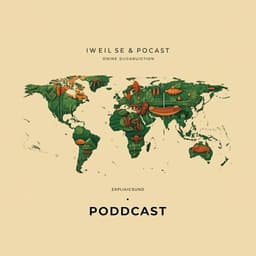
Sociology
Duration of agriculture and distance from the steppe predict the evolution of large-scale human societies in Afro-Eurasia
T. E. Currie, P. Turchin, et al.
Explore the intricate dynamics of large, complex human societies in Afro-Eurasia as investigated by Thomas E. Currie, Peter Turchin, Edward Turner, and Sergey Gavrilets. Discover how agriculture and proximity to the Eurasian steppe influenced societal organization over 3000 years, challenging conventional views on agricultural productivity.
Related Publications
Explore these studies to deepen your understanding of the subject.







